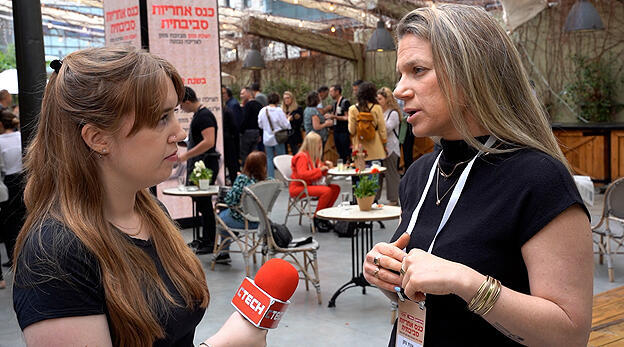
CTalk
“We're here to transform the way we consume our food"
Anat Natan, CEO and Co-Founder of ANINA, talked to CTech at the Food Waste and Sustainability conference in Tel Aviv about how changing food consumption can address food waste
Anat Natan
(Sinai David)
“We're here to transform the way we consume our food, to create a very meaningful experience in food consumption. But not only how it tastes and how we produce it, but how we choose our ingredients,” said CEO and Co-Founder of ANINA Anat Natan to CTech during Calcalist and Sufersal’s Food Waste and Sustainability conference in Tel Aviv this week.
Founded in 2020, ANINA produces ready to cook capsule-shaped meals made from vegetables that were deemed unsellable due to aesthetic reasons. ANINA aims to increase the usage of ugly produce in the food industry, utilize fusion of innovative technology, expertise in design, and knowledge in culinary arts to create magical foods. The impetus for ANINA was to address Israel’s food waste problem - one of the worst among the developed world, Israel wastes an estimated 2 million tons, or approximately one third of our food, every year.
Natan said that in order to address Israel’s food waste epidemic, there are two main areas that need to be targeted - firstly, the food industry. “When I say food industry, it's the whole value chain. It starts from the retailers and the farmers and also the food manufacturing. That's one level we should target. I think the big corporations need to understand and to incorporate new techniques, ideas and solutions to the situation that won't affect the economic stage where they are.”
The second area that requires attention is widespread educational initiatives from the ground up, top down and everywhere in between. “This is a responsibility that doesn't only rely on the business factor. This needs to be on a governmental level,” she added. “When I was a kid, it was all about saving water and understanding the situation. We grew up understanding that there's not enough water in Israel. We have changed our habits [as a result].”
You can watch the full interview in the video above.















